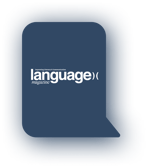To Support the Science of Reading, Replace Disinformation with Collaboration
by PRP Group, on 03/27/2024
 My first teaching job after earning a Master of Arts in teaching was at a private school in Austin, Texas, for students with dyslexia. Nearly all of these students had prior school experiences that were not positive. Yet they were thriving because they were at a school where teachers and staff, including highly trained academic language therapists, knew how the English language is structured, how to break it apart, and how to teach each component of the language explicitly and systematically to students.
My first teaching job after earning a Master of Arts in teaching was at a private school in Austin, Texas, for students with dyslexia. Nearly all of these students had prior school experiences that were not positive. Yet they were thriving because they were at a school where teachers and staff, including highly trained academic language therapists, knew how the English language is structured, how to break it apart, and how to teach each component of the language explicitly and systematically to students.
I was so intrigued by the students’ success that when I moved to Rhode Island, I sought someone to equip me with this knowledge I had not gained in my educator preparation program. I was fortunate to meet an Orton Gillingham Academy Fellow, Linda Atamian, who spent the next several years training me. I learned about phonemes, graphemes, syllables, morphemes, syntax, and semantics. I learned about the cognitive process that occurs in the brain as we learn to turn print into language. I applied this knowledge while working with high school students who were 13–17 years old and who, despite their years of schooling, had not developed skills necessary for them to read and comprehend text.


